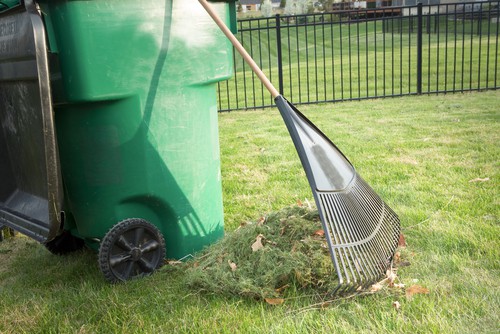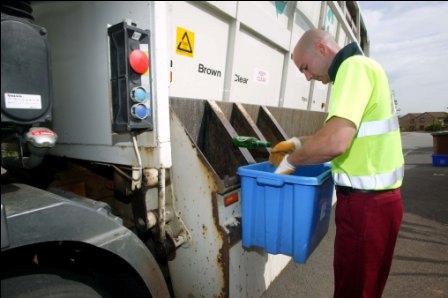Waste businesses and councils are calling for increasing involvement from manufacturers to fund the recycling of their products, in a bid to reverse the first ever decline in the UK’s household recycling rate.
According to official statistics released by the Department for Environment, Food & Rural Affairs today (15 December), the UK’s recycling rate decreased from 44.9% to 44.3% in 2015. In England, the household recycling rate fell from 44.8% to 43.9%.

(Clockwise from top left): Jeremy Jacobs, REA, Jakob Rindegren, ESA, Andrew Bird, LARAC, and David Palmer-Jones Suez, have all responded to the UK’s falling recycling rate
The figures have prompted speculation from waste and recycling companies and local authorities as to the reasons behind the decline.
Many have pointed to the effect of cuts to local authority budgets – with calls for a debate over ‘new funding streams’ for recycling, including through extended producer responsibility (EPR), gaining momentum.
Organic waste
However, Defra has pointed to a fall in organic waste available for composting as having contributed to the drop in recycling rates.
The Department has suggested that a higher temperature and level of rainfall may have contributed to more green waste being available in early 2014 – conditions that were not matched in 2015 and could have seen tonnages drop comparatively (see letsrecycle.com story).
But, Jeremy Jacobs, technical director at the Renewable Energy Association which represents composters, has disputed this explanation and said the decline could be traced to council budget cuts and a number of local authorities implementing charges for garden waste collections.
He said: “I think this year has been a very good growing year, so I think they [Defra] are just clutching at straws. There’s always going to be climatic considerations but we can’t use that as an excuse for falling recycling rates.
“Charging schemes implemented by 50% of local authorities for garden waste will have made a significant contribution to this figure. The reality is people are dumping material in residual bins or composting at home to avoid the charge. In three years all local authorities will be charging to save costs but the impact of that will be recycling rates will continue to fall.”
However, Peter Jones, principal consultant at Eunomia has argued that the impact of charges for green waste collection are likely only to have had minimal impact.
He said: “The biggest drop has been in garden waste and people will point to charging as the largest cause of that. I don’t think the data points to that being the explanation.
“What we have seen working with local authorities is that tonnages don’t necessarily go down when you implement a charge.”
ESA
Commenting on the figures, the Environmental Services Association’s recycling advisor Jakob Rindegren said that a change in weather patterns was “beyond our control” but conceded that an increase in garden waste charging “probably played a part”.
He added: “While dry recycling was broadly flat, we clearly need to be doing more if we are to meet our recycling ambitions. During these times of stretched council budgets, it is vital that we put in place the right systems and infrastructure to boost recycling. ESA believes that producer responsibility has a big part to play in this regard. This is a message we will continue to press with Defra in 2017.”
Councils
The Local Authority Recycling Advisory Committee chair Andrew Bird said he was “disappointed” that the recycling rate had dropped for the first time and called for a “fundamental review” of council funding streams.
He said: “We need to establish new funding streams into local authorities to ensure the recycling rate increases again. As an industry, we need a mature conversation about how we can implement EPR and Direct Charging systems that provide funds to the relevant parts of the system, enabling producers to meet their obligations and ensure a step change in the recycling habits of people.”
EPR
Waste management firm Suez has also lent its support for a debate on the implementation of EPR schemes to take the burden off councils.
David Palmer-Jones, chief executive of Suez in the UK, stressed more funding of kerbside collections by producers, deposit-return schemes or reverse vending systems could be required if UK recycling is to recover.
He said: “Placing recycling targets on producers and making them responsible for funding waste collection would incentivise them to reduce post-consumer waste by avoiding unnecessary packaging, and to design products and packaging which are easier to recycle.
“A producer-funded system would take the pressure off local authority budgets and in the long run drive a more resilient and high-performing recycling sector.”
The post ‘New funding streams needed’ to tackle recycling drop appeared first on letsrecycle.com.
Source: letsrecycle.com Waste Managment




